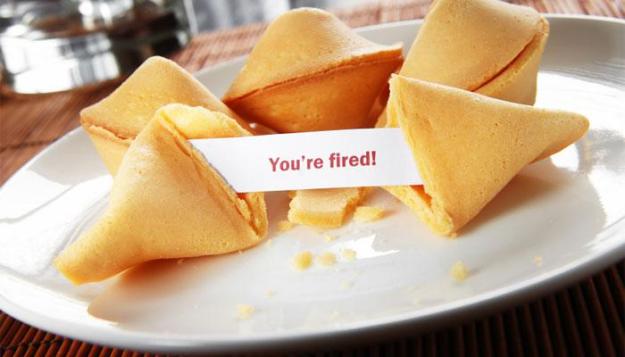 When Facebook started it was keg pictures and poking – and now it’s one of the first places employers go when they want to find out more about you. According to a new report by On Device Research, one in 10 young people have been rejected from a job because of the content of their social media profiles.
When Facebook started it was keg pictures and poking – and now it’s one of the first places employers go when they want to find out more about you. According to a new report by On Device Research, one in 10 young people have been rejected from a job because of the content of their social media profiles.
People have been getting fired for their activity on sites like Twitter, Facebook, and Instagram for a while, but this report is noteworthy because it underlines how common it is to have negative real-life repercussions from fooling around on the Internet. You’d think that this widespread rejection would make young people more cautious when posting online, but the On Device study noted that two thirds of the respondents are not concerned that their social media will damage their careers. That means there’s some kind of disconnect happening between what people think is acceptable to employers online and what’s actually acceptable.
People have been getting in trouble from their employers for what they put on Facebook for years now, and there doesn’t seem to be a societal consensus on what’s supposed to be kept private or what exactly is inappropriate. Younger, more casual workplaces are far more lenient about the digital content their staffs put out, while more conservative, image-conscious organizations tend to have a far lower tolerance for illicit or bawdy behavior online.
Yet even the most relaxed employers tend to have lines in the sand when it comes to what employees can put online, and many people are facing serious professional repercussions for what they thought were frivolous 140-character tweets and personal Facebook posts. For instance, the Daily Dot reported that a Phoenix-based woman named Amy McClenathan wrote “I wish I could get fired some days, it would be easier to be at home than to have to go through this” on Facebook … and then was fired promptly the next day. And one Harlem Shake video did more than annoy the Internet: It got its creators fired.
These are stories are anything but unique; people all over the world have been fired or at least reprimanded for what they put on their social media accounts, even when it’s not as direct — for instance, tech developer Adria Richards was fired for tweeting about people around her at a conference who were saying inappropriate things, even though she didn’t share their viewpoint. Her decision to shame others for their bad behavior on social media was enough for her to lose her job because she “alienated the developer community” by trying to publicly embarrass people. The San Jose Mercury News reported on legal experts who say her firing may have been unfair — but still, if you really, really don’t want to lose your job, participating in public shaming sites on company time isn’t playing it safe, even if you’re just cataloging someone else’s bad behavior.
And if you are taking to Twitter to complain about your job and assuming that no one will rat you out, since all of your followers are your friends, think again. There’s a service called FireMe! that gathers the most recent tweets that showcase a worker’s bad attitude about their job, and there’s always a chance you could show up. FireMe! was created to draw attention to the lack of privacy on social media, but it could still catch your employer’s eye – especially since it has a section called “Potential killers” dedicated to people who tweet about murdering their bosses.
There’s an overwhelming body of evidence that what you put on social media sites can land you in trouble at work. So if you don’t want to get in trouble, monitor yourself. You may be thinking, “No! I have a ribald sense of humor that cannot be tamed!” and I get it. If you really want to tweet super inappropriate jokes, make sure your boss is OK with it in real life first, or make up a Twitter handle that lacks identifying characteristics.
The disconnect between how many people are getting punished for their social media behavior and how confident younger users are that their behavior is appropriate means people may need to tone it down a little if they want to keep their professional lives intact — or there need to be new speech protections in place that make it harder to fire someone for their online blathering. Either way, your boss may not be as cool as you think with those bikini-and-bong pictures and (even jokingly) violent comments you’re throwing up on Instagram. And even your Vines can get you fired, so just because a form of social media isn’t super mainstream yet, doesn’t mean you can post whatever you want.
Editors' Recommendations
- More status options coming to Twitter, including ‘don’t @ me’
- You’re probably seeing more social media propaganda, but don’t blame the bots




